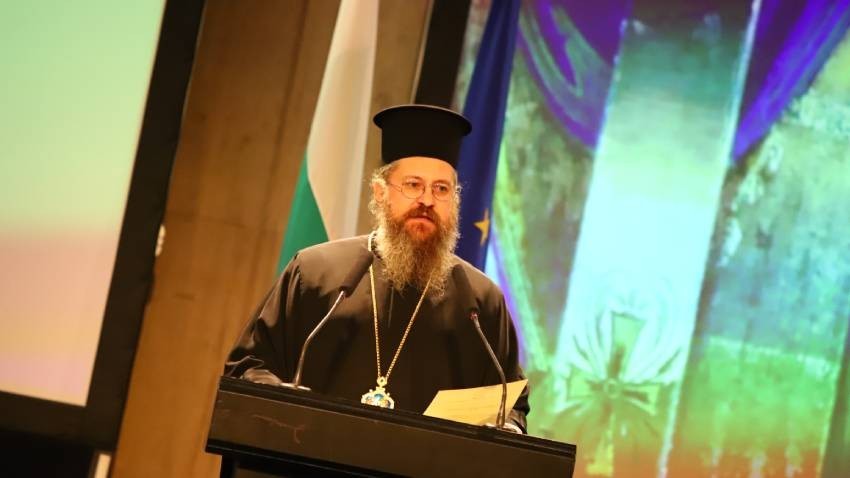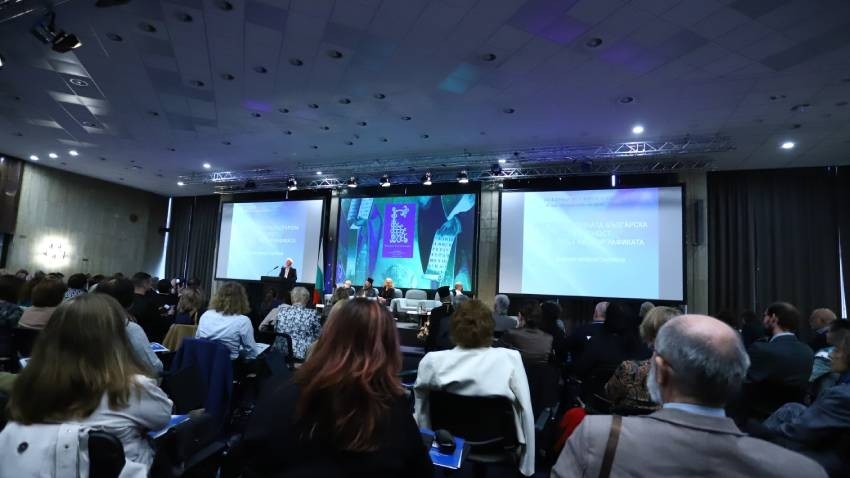“It was in the Bulgarian lands that the disciples of Cyril and Methodius established cultural hubs, raising Bulgaria to a second centre of Orthodox civilization after Byzantium. It was here that the root, the foundation from which all-Slavic culture drew strength and flourished was to be found, asserting for all time the universal principle and equality in the Christian world.” With these words, via video address, President Rumen Radev opened the international conference in Sofia dedicated to the Cyrillic alphabet called “We, too, in this world have performed a good deed”.
“Today the Cyrillic alphabet does not belong solely to the Bulgarian people. Having started their journey from our lands, these letters now shed light over a much wider spiritual domain, uniting hundreds of millions of people. Having become our most precious gift to human civilization, the Cyrillic alphabet throws bridges, connects worlds, eradicates distances and differences,” the Bulgarian head of state said.

In Patriarch Neophyte’s address, read out by Bishop Polycarp, the Bulgarian Patriarch stated that the alphabet is a symbol of our Slavic Orthodox identity, and that it is identity that constitutes one of the problems of today’s world. “The attempts to disrupt it spiritually and culturally lead to painful processes which invariably inflict deep wounds on society,” he says.
It is inadmissible for history to be substituted, distorted, to be sometimes obligingly forgotten so as serve the current political situation or geostrategic interests, Vice President Iliana Iotova said in her address.
“This international forum dedicated to the Cyrillic alphabet is our way of opposing any attempts - from the East or from the West – to substitute the facts, to deny the contribution of the Bulgarian state, to reject or to downplay the significance of the two literary schools – the Preslav and the Ohrid school, whose influence extends far beyond the borders of what was then Bulgaria.”

The scientific forum, convened at the initiative of Vice President Iliana Iotova, brought together prominent Bulgarian scholars, as well as Bulgarian language studies experts from 11 countries, among them Austria, Belgium, Germany, Greece, Italy, Poland, Lithuania and Serbia. Their reports will focus on the alphabet as Bulgaria’s contribution to the world cultural treasure trove. The idea is for the scientific meeting to become a regular event, taking place every other year as a platform for presenting new scientific facts and studies of the Cyrillic alphabet, Vice President Iotova said.
The conference will end with a round table “The Cyrillic alphabet in the 21st century” and an exhibition presenting “The miracle-working icons and holy relics in the Balkans”, organized by the Foreign Ministry’s State Institute for Culture.
On 8 and 9 November the participants from abroad will take a trip to Bulgaria’s old capitals Pliska, Preslav and Rurnovo, the depositories of some museums and will visit some newly discovered epigraphic and archaeological landmarks in Northeastern Bulgaria.
Photos: BGNES
The eighth International Violin Competition “Vasco Abadjiev” will take place in Sofia from 20 to 23 November, attracting record interest. The organizers from the UNESCO Club “Leonardo da Vinci” – Sofia are delighted to have received 32 applications..
Stefan Komandarev’s film “Made in EU” has won the Critics’ Prize at the Arras Film Festival in France, the film’s team announced. The jury was composed of film critics and journalists from France 2, France Inter, Allociné, Konbini, Vanity Fair, and..
The first Sound and Light multimedia show took place at Tsarevets fortress in Veliko Tarnovo in 1985. The occasion – the 800 th anniversary of the uprising by Peter and Asen that led to the restoration of Bulgarian statehood after two..

+359 2 9336 661
